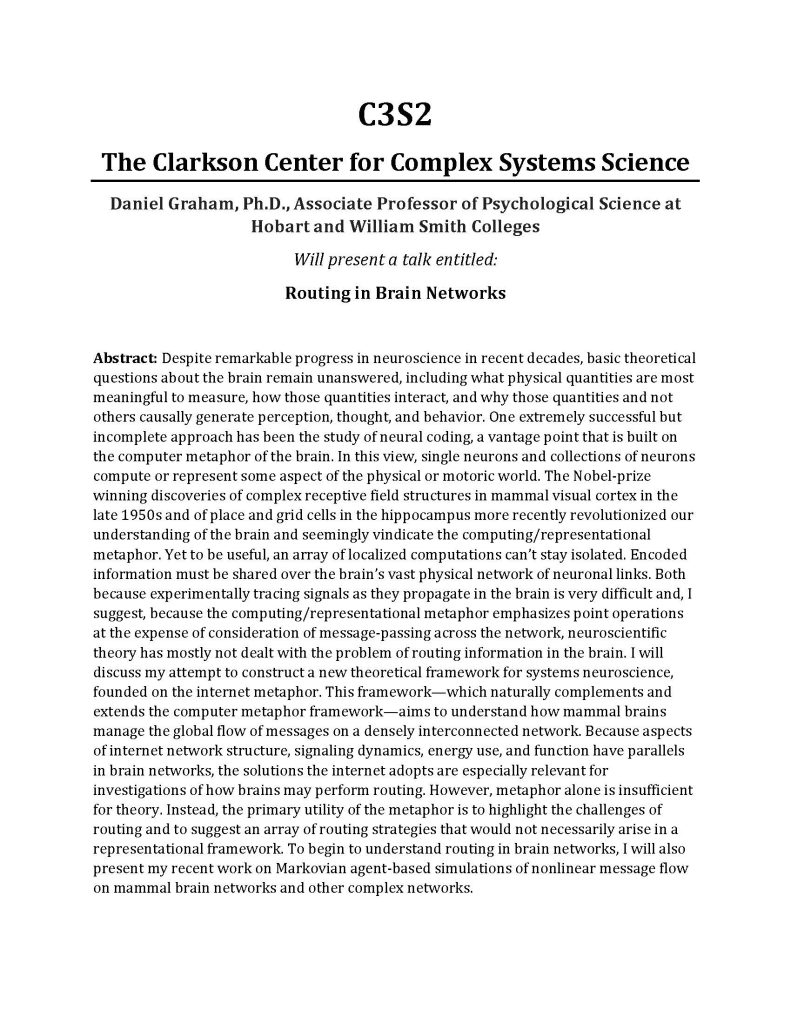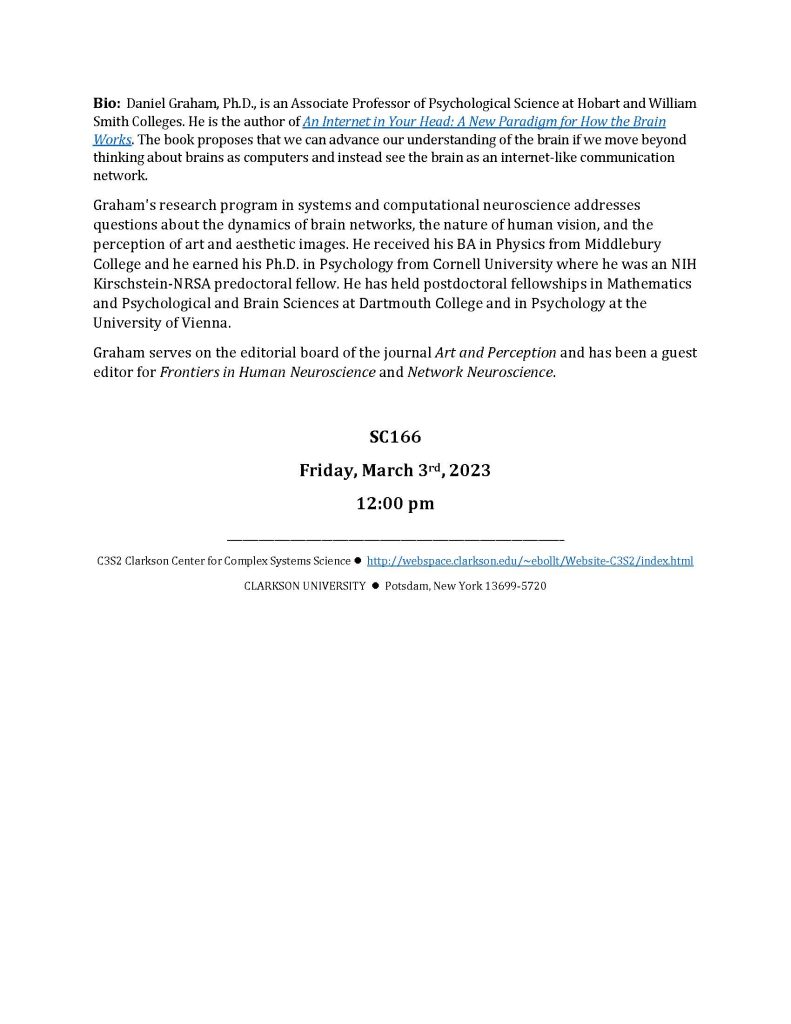C3S2
The Clarkson Center for Complex Systems Science
Daniel Graham, Ph.D., Associate Professor of Psychological Science at Hobart and William Smith Colleges
Will present a talk entitled:
Routing in Brain Networks
Abstract: Despite remarkable progress in neuroscience in recent decades, basic theoretical questions about the brain remain unanswered, including what physical quantities are most meaningful to measure, how those quantities interact, and why those quantities and not others causally generate perception, thought, and behavior. One extremely successful but incomplete approach has been the study of neural coding, a vantage point that is built on the computer metaphor of the brain. In this view, single neurons and collections of neurons compute or represent some aspect of the physical or motoric world. The Nobel-prize winning discoveries of complex receptive field structures in mammal visual cortex in the late 1950s and of place and grid cells in the hippocampus more recently revolutionized our understanding of the brain and seemingly vindicate the computing/representational metaphor. Yet to be useful, an array of localized computations can’t stay isolated. Encoded information must be shared over the brain’s vast physical network of neuronal links. Both because experimentally tracing signals as they propagate in the brain is very difficult and, I suggest, because the computing/representational metaphor emphasizes point operations at the expense of consideration of message-passing across the network, neuroscientific theory has mostly not dealt with the problem of routing information in the brain. I will discuss my attempt to construct a new theoretical framework for systems neuroscience, founded on the internet metaphor. This framework—which naturally complements and extends the computer metaphor framework—aims to understand how mammal brains manage the global flow of messages on a densely interconnected network. Because aspects of internet network structure, signaling dynamics, energy use, and function have parallels in brain networks, the solutions the internet adopts are especially relevant for investigations of how brains may perform routing. However, metaphor alone is insufficient for theory. Instead, the primary utility of the metaphor is to highlight the challenges of routing and to suggest an array of routing strategies that would not necessarily arise in a representational framework. To begin to understand routing in brain networks, I will also present my recent work on Markovian agent-based simulations of nonlinear message flow on mammal brain networks and other complex networks.
Bio: Daniel Graham, Ph.D., is an Associate Professor of Psychological Science at Hobart and William Smith Colleges. He is the author of An Internet in Your Head: A New Paradigm for How the Brain Works. The book proposes that we can advance our understanding of the brain if we move beyond thinking about brains as computers and instead see the brain as an internet-like communication network.
Graham’s research program in systems and computational neuroscience addresses questions about the dynamics of brain networks, the nature of human vision, and the perception of art and aesthetic images. He received his BA in Physics from Middlebury College and he earned his Ph.D. in Psychology from Cornell University where he was an NIH Kirschstein-NRSA predoctoral fellow. He has held postdoctoral fellowships in Mathematics and Psychological and Brain Sciences at Dartmouth College and in Psychology at the University of Vienna.
Graham serves on the editorial board of the journal Art and Perception and has been a guest editor for Frontiers in Human Neuroscience and Network Neuroscience.
SC166
Friday, March 3rd, 2023
12:00 pm
________________________________________________________________
C3S2 Clarkson Center for Complex Systems Science l http://webspace.clarkson.edu/~ebollt/Website-C3S2/index.html
CLARKSON UNIVERSITY l Potsdam, New York 13699-5720


